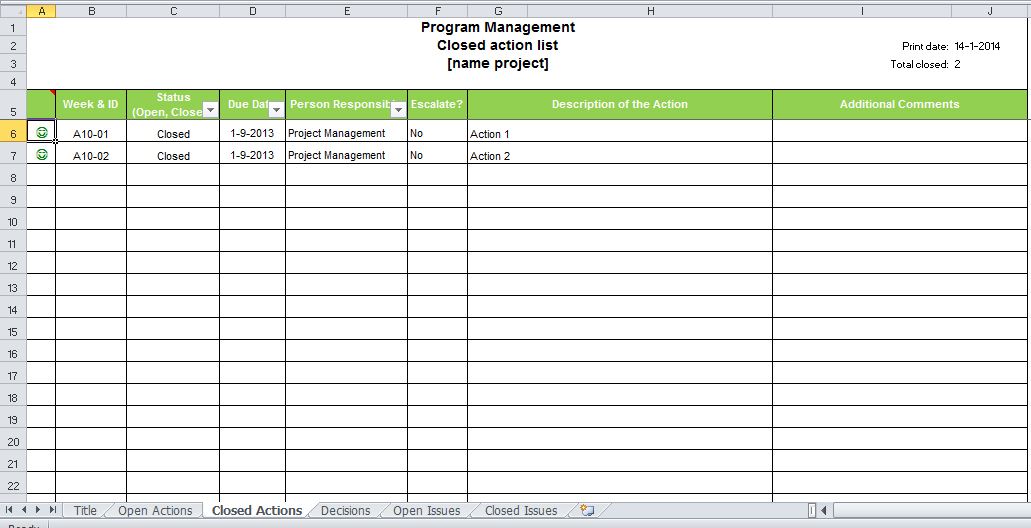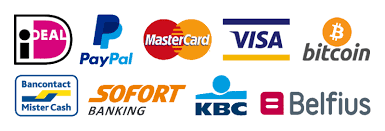Program Management Form Template
Save, fill-In The Blanks, Print, Done!

Download Program Management Form Template

Available premium file formats:
Microsoft Spreadsheet (.xls)- This Document Has Been Certified by a Professional
- 100% customizable
- This is a digital download (300.5 kB)
- Language: English
- You will receive a link to download the file as soon as your payment goes through.
- We recommend downloading this file onto your computer.
Why do we need program management templates? Need a project management form template that's easy to use? We recommend checking out the Project Management Form template from our library of templates. It's easy to use and provides all the necessary information to track your project progress. Download our form template now and get started tracking your project progress!
A Program Management Form is a structured document or tool used in program management to plan, monitor, and control multiple related projects or initiatives collectively referred to as a program. Program management involves coordinating and overseeing a set of interdependent projects to achieve strategic objectives and deliver benefits that might not be attainable by managing each project individually. Program Management Forms help program managers and teams effectively manage and track the various components of a program. These forms can take different formats and vary in complexity, but they typically include the following elements:
- Program Information: This section provides an overview of the program, including its name, description, objectives, and strategic alignment. It may also include information about the program manager, stakeholders, and key team members.
- Program Scope: Define the scope of the program, outlining the projects or subcomponents that are part of the program. Describe the relationships between these projects and how they collectively contribute to the program's goals.
- Program Schedule: This section includes a high-level program timeline or roadmap that outlines when each project or phase within the program is expected to start and finish. It may also indicate major milestones and dependencies between projects.
- Program Budget: Summarize the overall budget for the program, including funding sources, allocation of funds to individual projects, and any financial constraints or contingencies.
- Program Risks and Issues: Identify and assess potential risks and issues that could impact the program's success. Include strategies for risk mitigation and issue resolution.
- Resource Management: Detail the allocation of resources (e.g., personnel, equipment, budget) to the various projects within the program. Highlight any resource constraints or challenges.
- Performance Metrics: Define key performance indicators (KPIs) or metrics that will be used to measure the program's progress and success. These metrics should align with the program's objectives and strategic goals.
- Stakeholder Management: Outline the program's stakeholder communication and engagement plan. Identify key stakeholders, their roles, and how their interests and concerns will be addressed.
- Governance and Decision-Making: Describe the program's governance structure, including roles and responsibilities of program governance bodies (e.g., steering committee), decision-making processes, and escalation procedures.
- Change Management: If applicable, document the program's change management approach, including how changes to scope, schedule, or resources will be evaluated, approved, and communicated.
- Documentation and Reporting: Specify how program documentation will be maintained and where it will be stored. Include details on reporting frequency and the format of program status reports.
- Quality Assurance: Outline the program's approach to quality management, including quality standards, processes for quality assurance, and mechanisms for monitoring and improving quality.
Program Management Forms serve as a central reference point for program managers, team members, and stakeholders. They help ensure that all aspects of the program are considered, planned for, and tracked systematically. Program managers use these forms to communicate program status, make informed decisions, and proactively address issues and risks that may arise during program execution. The level of detail and complexity of the form can vary depending on the size and complexity of the program.
We provide a thorough Program Management Excel Template to help Program Managers structure their Actions, Issues, and Decisions in a professional overview that will professionalize their way of communication to all team members and stakeholders.
This Program Management Excel template consists of the following 6 Excel tabs:
- Title
- Open actions
- Closed auctions
- Decisions
- Open issues
- Closed issues
DISCLAIMER
Nothing on this site shall be considered legal advice and no attorney-client relationship is established.
Leave a Reply. If you have any questions or remarks, feel free to post them below.
Top Project Management Templates
Are you looking for effective project management templates to improve your project efficiency and effectiviness? These easy to amend project management templates can help you out!
Read moreRelated templates
Latest templates
Latest topics
- GDPR Compliance Templates
What do you need to become GDPR compliant? Are you looking for useful GDPR document templates to make you compliant? All these compliance documents will be available to download instantly... - Google Docs Templates
How to create documents in Google Docs? We provide Google Docs compatible template and these are the reasons why it's useful to work with Google Docs... - IT Security Standards Kit
What are IT Security Standards? Check out our collection of this newly updated IT Security Kit Standard templates, including policies, controls, processes, checklists, procedures and other documents. - Letter Format
How to format a letter? Here is a brief overview of common letter formats and templates in USA and UK and get inspirited immediately! - Google Sheets Templates
How to work with Google Sheets templates? Where to download useful Google Sheets templates? Check out our samples here.
cheese
